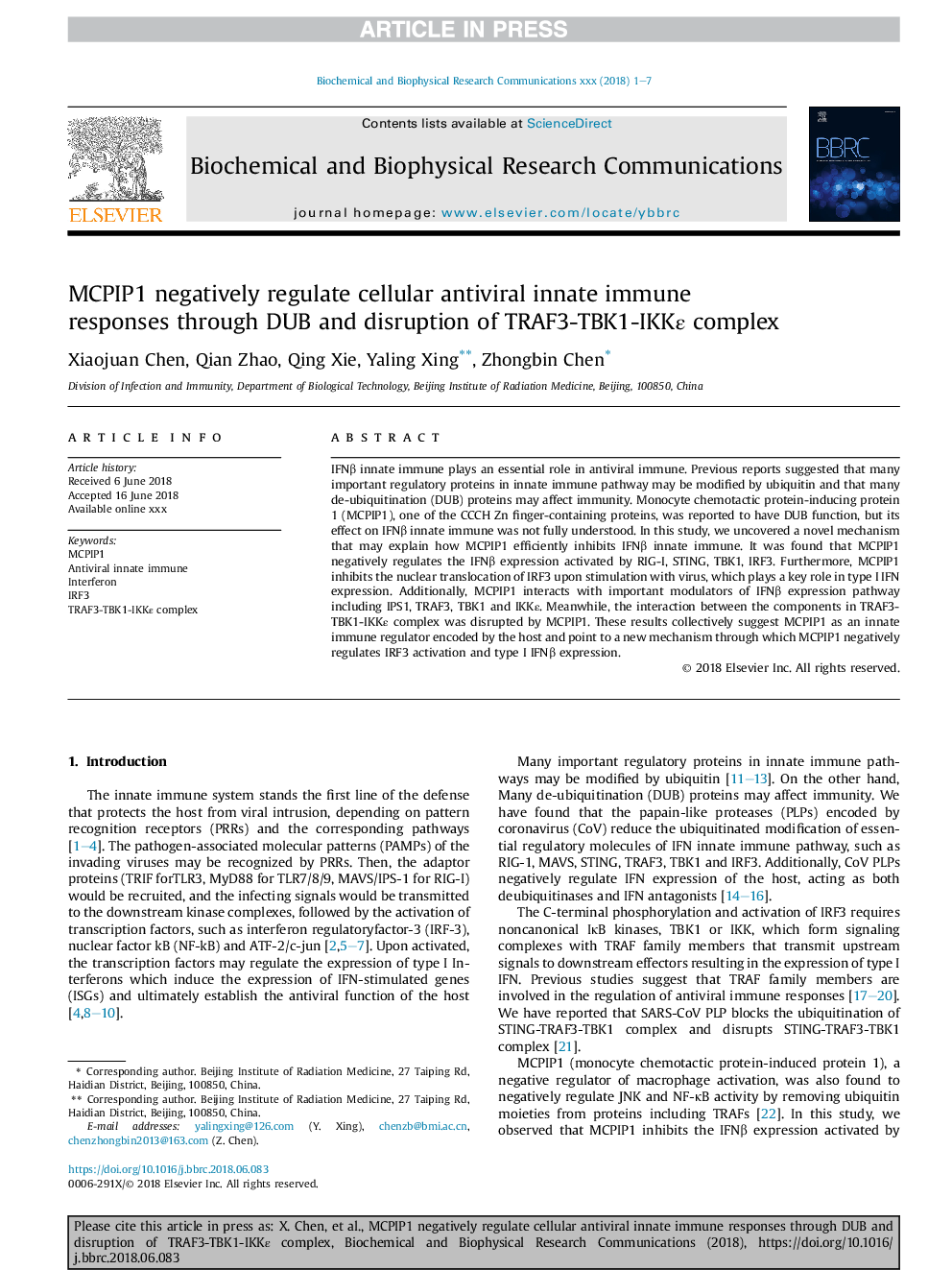| Article ID | Journal | Published Year | Pages | File Type |
|---|---|---|---|---|
| 8292340 | Biochemical and Biophysical Research Communications | 2018 | 7 Pages |
Abstract
IFNβ innate immune plays an essential role in antiviral immune. Previous reports suggested that many important regulatory proteins in innate immune pathway may be modified by ubiquitin and that many de-ubiquitination (DUB) proteins may affect immunity. Monocyte chemotactic protein-inducing protein 1 (MCPIP1), one of the CCCH Zn finger-containing proteins, was reported to have DUB function, but its effect on IFNβ innate immune was not fully understood. In this study, we uncovered a novel mechanism that may explain how MCPIP1 efficiently inhibits IFNβ innate immune. It was found that MCPIP1 negatively regulates the IFNβ expression activated by RIG-I, STING, TBK1, IRF3. Furthermore, MCPIP1 inhibits the nuclear translocation of IRF3 upon stimulation with virus, which plays a key role in type I IFN expression. Additionally, MCPIP1 interacts with important modulators of IFNβ expression pathway including IPS1, TRAF3, TBK1 and IKKε. Meanwhile, the interaction between the components in TRAF3-TBK1-IKKε complex was disrupted by MCPIP1. These results collectively suggest MCPIP1 as an innate immune regulator encoded by the host and point to a new mechanism through which MCPIP1 negatively regulates IRF3 activation and type I IFNβ expression.
Keywords
Related Topics
Life Sciences
Biochemistry, Genetics and Molecular Biology
Biochemistry
Authors
Xiaojuan Chen, Qian Zhao, Qing Xie, Yaling Xing, Zhongbin Chen,
